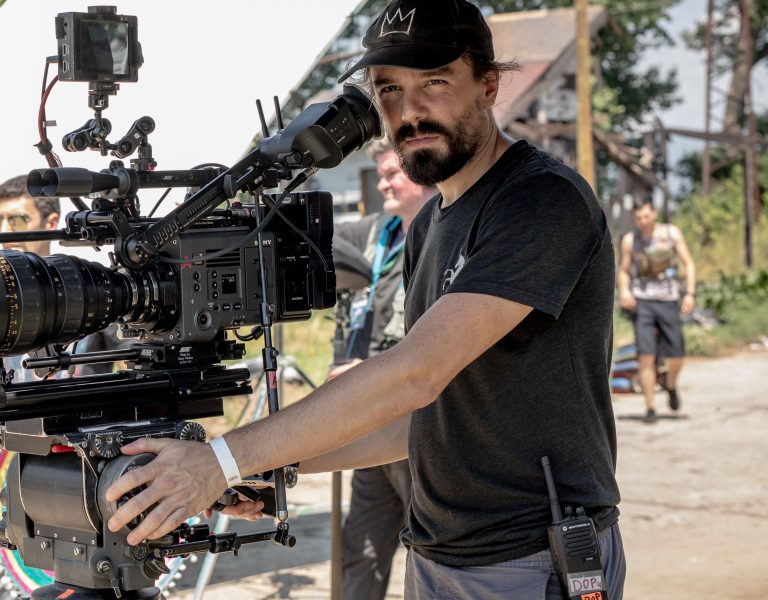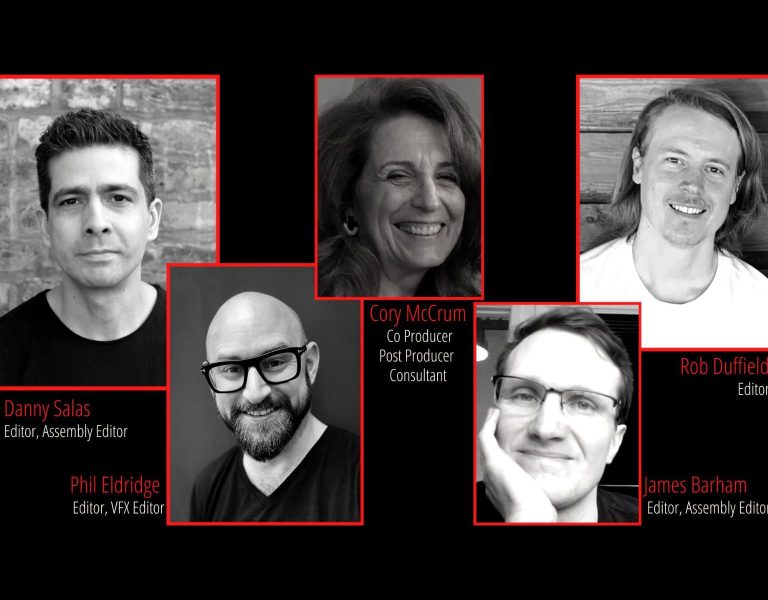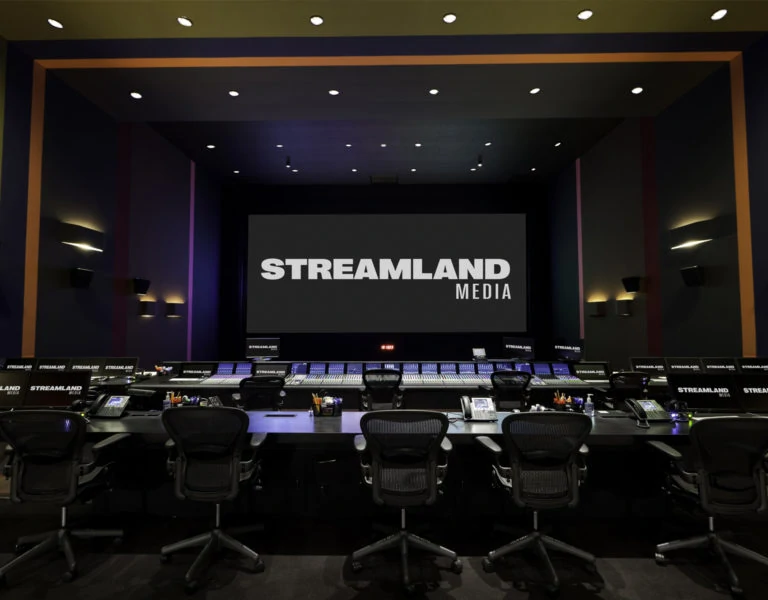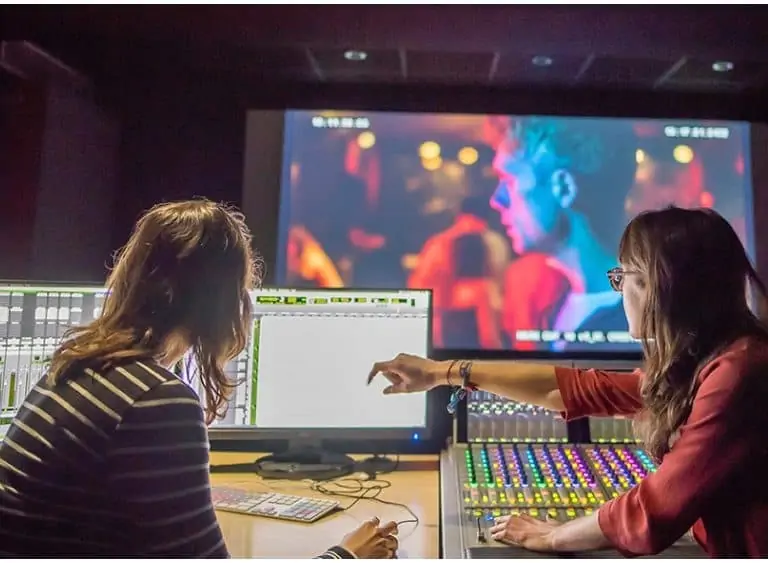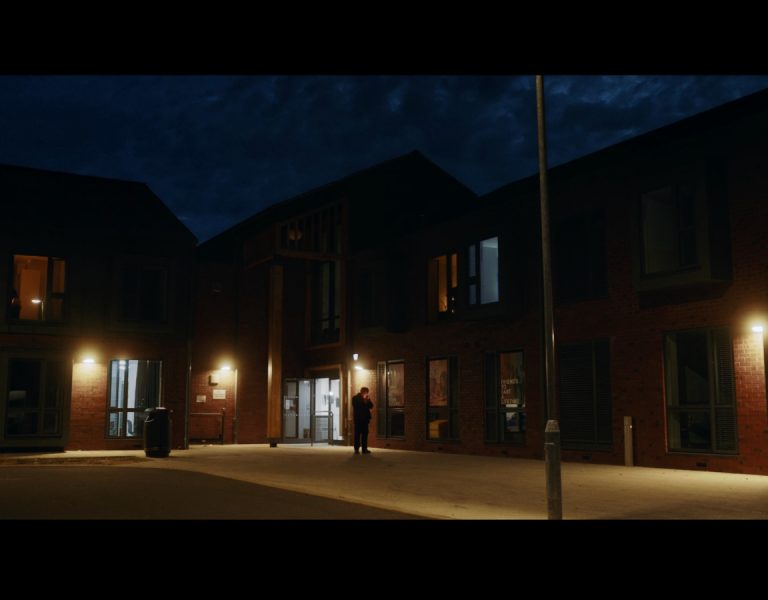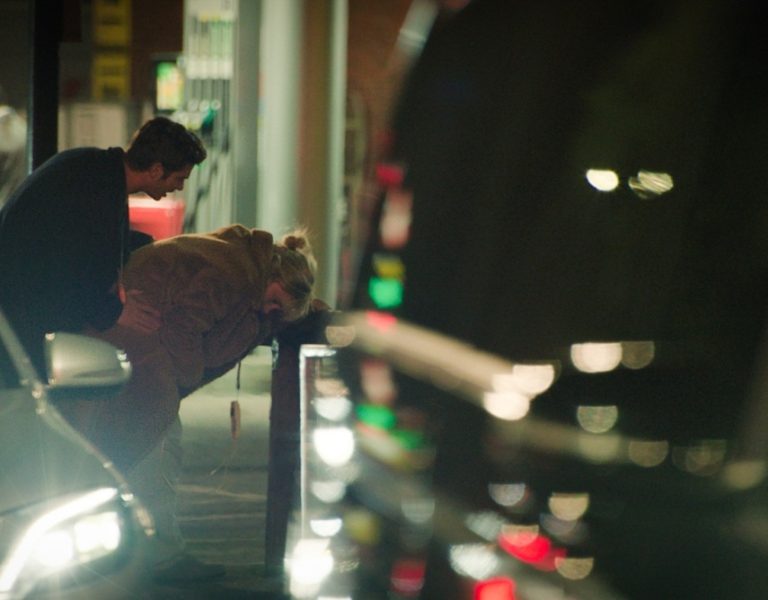As the dust settles after the conclusion of the SAG AFTRA strike, the film industry faces profound challenges, particularly affecting UK freelancers.
The SAG AFTRA strike finally ended at 12:01 AM PST on 9 November 2023, after a gruelling 118 days. A staggering 80% of the UK film and television industry was directly impacted, with three-quarters of workers facing unemployment, according to a BECTU survey of nearly 4,000 respondents in September 2023.
The SAG AFTRA strike ended at 12.01 Pacific Standard Time on 9 November 2023, having lasted 118 days. According to nearly 4000 respondents of a BECTU survey in September 2023, 80% of the UK film and television industry were directly impacted and three quarters were unemployed. Many freelancers are considering leaving the industry and retraining. Any initial delight in wondering what to do with all that spare time has long since dissipated and been replaced by the terror of wondering if you’ll ever work again, leading to the inevitable financial insecurity accompanied by equal amounts of emotional insecurity. Nine months later, the situation is little changed. There is currently no financial support from the Government, other than Universal Credit, for which very few are likely to qualify. July is rumoured to be the magic month for which the rental companies are gearing up.
Freelancers are by definition resilient and capable and many have found alternative ways to keep themselves afloat. Not as literally as one video assist operator who led a gilded life back in the day and divided the year with six months in the industry, followed by six months sailing his chartered junk round Thailand’s shores. Nice work if you can get it, but a random sample of GBCT members have contented themselves with more mundane tasks, such as DIY from assembling children’s bunk beds to building an entire shed. Other side hustles to help with both mental health and bank balance include installing solar hot water systems, part time bar work, selling on Vinted, taking jobs via Airtasker, painting and decorating, taxi driving, working for an electrical company, working for a funeral company, labouring on building sites and building web sites. Having re-built the new and excellent GBCT website (https://www.gbct.org) Ian Ogden GBCT has launched his own, offering to do the same for companies and individuals: http://www.gripdesignfactory.com/ Add enterprising and adaptable to resilient and capable.
Times have moved on since Jane Austen’s immortal opening line in Pride and Prejudice and it is now a truth universally acknowledged by crew that there’s always room for improvement in the world of cameras and cinematography. Emin Atilgan GBCT 2nd AC and Ryan Parkins 1st AC recognised this whilst working together on the first series of Silo, shortly before we all emerged from the strange Covid world of face masks, two metre poles, temperature checks and hazard tape.
They discovered that they live on the same street and an idea grew on shared car journeys to and from work, discussing frequently encountered situations where existing equipment didn’t quite meet the specific needs of a production or the preferences of the camera operator. Justin Hawkins GBCT, B camera operator on Silo, gave them their first opportunity to put their idea to the test. Shooting was fast paced and the Electronic Viewfinder Extension was too long and bulky for working quickly and efficiently between camera set ups. Emin and Ryan designed and made a mini EVF extension, which Justin liked so much that he used it constantly for the rest of the shoot and took it with him to use on his next job.
In 2022 they invested in 3D printers, installed them in Emin’s garage and taught themselves CAD and Fusion 360 with which they designed camera accessories and created bespoke parts, brackets and mounts to revolutionize the camera industry. Having set up a deal to sell their products on Etsy, Film & Focus/Focus 3D (https://focus3d.xyz) was launched in January 2023. Their first products were light weight brackets for the Preston Light Ranger and Focus Bug Cine RT systems, which were used on Silo and Masters of the Air. Since then, they’ve expanded and their ever-increasing catalogue of innovative and custom-made accessories includes Steadicam accessories and protective cases.
The lucky few
There are those who’ve managed to keep working throughout, but it’s not all roses as per this anguished post from a junior crew member: “I’m one of the lucky ones that haven’t stopped working this year. I’ve been taking long form back to back since February and didn’t take much time off between jobs. I know that I should be grateful that I am working. But man, I’m exhausted! Even with all those months of work, I can’t get any money on the side. I go pay cheque to pay cheque.”
Perhaps the recent announcement from the Department of Culture, Media and Sport is a ray of hope in the darkness. They have announced that they back the establishment of a Freelancers Commissioner to represent workers in the creative industries. In its Creator Remuneration report, published on 10 April 2024, the Introduction states “Culture creates meaningful moments in people’s lives, but many creators struggle to make a living. Short-term project-based employment, precarious public and private funding and technological disruption have all contributed to poor rates of remuneration.” This despite “Film and high-end TV (HETV) production in the UK added a record £6.27 billion of inward investment alone in 2022.” Last year’s actors and writers strikes took their toll, but nevertheless official BFI 2023 statistics reveal a £4.23 billion film and high-end television production spend in the UK. UK/Ireland box office generated £986 million over the year, with Barbie the biggest film of 2023 and The Great Escaper leading the UK independent chart.
The report noted “The creative industries also have an intrinsic value beyond their economic impact.” The Government’s recent Creative Industries Sector Vision, A joint plan to drive growth, build talent and develop skills, describes the sector as “an essential positive force for society, bringing joy, inspiration and opportunity to our lives” that provides “the news that informs our democracy, the designs that shape our cities and the content and performances that enrich our lives and strengthen our global image”. It also noted that the prevalence of freelancing “leaves creators vulnerable to downturns and/or unable to access annual leave, parental leave and sick pay or contribute to a pension, and constrains social mobility in the sector”.
Further comment from the committee states that “freelancers’ pay and working conditions are in decline, because they lack a single voice representing their interests to government and they have historically lost out on major policy initiatives from government interventions and support. In addition to creating the Freelancers Commissioner role, the committee also urges the government to implement the DCMS-sponsored Good Work Review to address the poor working conditions experienced by many creators, including inconsistent use of contracts, uneven responses to bullying, harassment and discrimination and a lack of proper support, training and development.”
The report also notes that “others in the creative sector have already called for the advocate role to be set up to support the workforce, with the idea previously being endorsed by the all-party parliamentary group for creative diversity, following the 2021 Creative Majority report.” 2021! To plagiarise the Ancient Greeks - the mills of the Government grind slowly. Let’s hope they will now grind exceedingly fine.
In the meantime, the Film and TV Charity offers practical support with mental and physical health, as well as invaluable advice on financial support, dealing with bullying and harassment, accessing legal advice and exploring career development.
On a smaller scale, but equally welcome, Real SFX (https://www.realsfx.com) has launched Kit4Crew, a practical and admirable initiative to help crew starting out or financially up against it. Company director and award-winning special effects supervisor Danny Hargreaves started in the industry as an SFX trainee on London’s Burning and worked his way up to found Real SFX in 2008. Earlier this year, swathed head to toe in wet weather gear and braced for a cold and rainy night shoot, Danny spotted a shivering trainee, lent him his spare waterproofs and had a brilliant idea. He discussed it with his partner and co-director Carmela Carruba and Kit4Crew (KIT4CREW@realsfx.com) was born. It’s a new initiative supported by BECTU and CULT Cymru and is a scheme whereby crew donate their (clean!) unwanted waterproofs/ wellies/gloves/jackets/thermals/socks etc which can then be distributed to crew who need them. Currently operating from Cardiff, the GBCT, ACO and BSC are also supportive and hope to make this a national campaign. Sustainable and heart-warming in both senses!
–
Meanwhile, more good news from Wales – the GBCT’s first ever film loading workshop to be held in Cardiff took place at Great Point Seren Studios in April. This was thanks to backing from CULT Cymru (Creative Unions Learning Together, https://cult.cymru/en/), funded by the Welsh Government’s Wales Union Learning Fund (WULF) and Creative Wales Skills Fund.
1st AC Sy Turner, a BECTU Learning Representative, had long been aware of a gap in the skills market and had discussed bringing the GBCT’s Film Loading Course from London to Cardiff. The support of Siwan Bowen, CULT Cymru Learning Co-ordinator, plus a meeting at BSC Expo with Roland Phillips GBCT, who had taught the GBCT’s 16 and 36mm film familiarisation course in November 2023, led to an intensive 4 days for 12 attendees.
Panaflex Platinum and Millennium XL2 cameras were supplied thanks to the generosity of Patrick Matterson at Panavision London. Andy Clarke at Sunbelt Cardiff was equally generous and supplied ARRI435 and ARRI 416 cameras. Cardiff based DP Jamie Harding kindly provided his own ARRI SR2. An Arricam LT completed the essential kit list, thanks to Aduke King and Martyn Culpan of London based rental house MCX. Roland ran the course jointly with Sam Rhys James. Sam is a former GBCT trainee as well as a past attendee of the GBCT film loading course of 10 years ago, which led to him gaining credits on big budget features Aladdin, Mission Impossible and Wonder Woman. Sam suggested including loading, exposing and shooting live film as part of the course. This was made possible by the great help and kindness of Sam Clarke at Kodak, who not only supplied the film, but also organised its development by Ruhan Lottering at Kodak Labs. The students had a great time and showed tremendous enthusiasm and inventiveness, shooting on all cameras, including a double exposure on the 435 and a short film on the SR2. “Slow and Furious” – a splendid illustration of the perils of checking yourself out in the vanity mirror. Once seen, never forgotten!
Feedback from participants was overwhelmingly positive: “The biggest impact on me is my confidence to apply for 16 & 35mm work and if hired, I have the know-how to carry out the job correctly. Everyone on the course was really friendly and my network has grown. I can reach out to the group in the future with questions and vice versa. We all keep learning together.”
